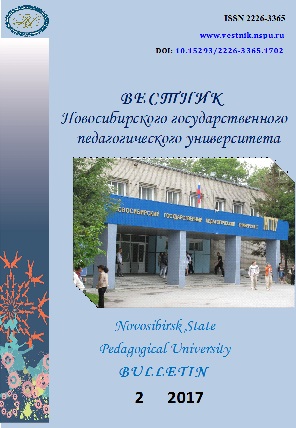Игровые методы в профессиональной подготовке лингвистов в условиях вуза КНР
Methodology of simulation and gaming in professional training of linguists at a Chinese university
Author(s): Irina Anatolievna Ishutina, Irina Victorovna SalosinaSubject(s): Language studies, Applied Linguistics, Theory of Literature
Published by: Новосибирский государственный педагогический университет
Keywords: Gaming simulation; active learning through play; role-playing; simulation; foreign-language communicative competence; interactive methods; Chinese students;
Summary/Abstract: Introduction. The objective of this research is to demonstrate the need for simulation/gaming methods in professional training of linguists at a Chinese university. This issue has not been studied in much detail because it is connected to the current modernization of Chinese higher educational system. Nowadays China and Russia are developing collaboration in different spheres, including education. The main purpose of the article is to provide a theoretical framework, develop and implement a system of game-based method for increasing educational results in the process of professional training of linguists at Chinese universities. Materials and Methods. The methodology of this study is based on the ideas of active learning in the context of higher education established by E. A. Allen, A. A. Verbitcky and game theory formulated by A. Fejes, K. Johansson, and A. P. Panfilova. The authors provide a theoretical framework based on the analysis of works by M. N. Viatiutnev, T. V. Vasilieva, and G. M. Levina devoted to theory and methods of teaching Russian as a foreign language.Our qualitative methodology included interviews with teachers and students, research literature review, and analysis of educational outcomes. Results. Firstly, the authors analyze the content and structure of simulations and role plays with the main focus on linguistic training at the Chinese university. Secondly, the authors discuss the action research carried out at Zhejiang Yuexiu University of Foreign Languages. Finally, the authors provide recommendations for Russian as a Foreign Language teachers who work at Chinese universities without authentic language environment. Conclusions. The authors prove the effectiveness of professional simulations and role plays in professional training of linguists in spite of the fact that teachers at Chinese universities prefer more traditional methods of language teaching (textbook-based exercises and lectures). However, the following factors must be taken into consideration: the peculiarities of educational system in China, and the degree of motivation and willingness of university teaching staff and students to use new teaching methods.
Journal: Вестник Новосибирского государственного педагогического университета
- Issue Year: 7/2017
- Issue No: 2
- Page Range: 20-33
- Page Count: 14
- Language: Russian

